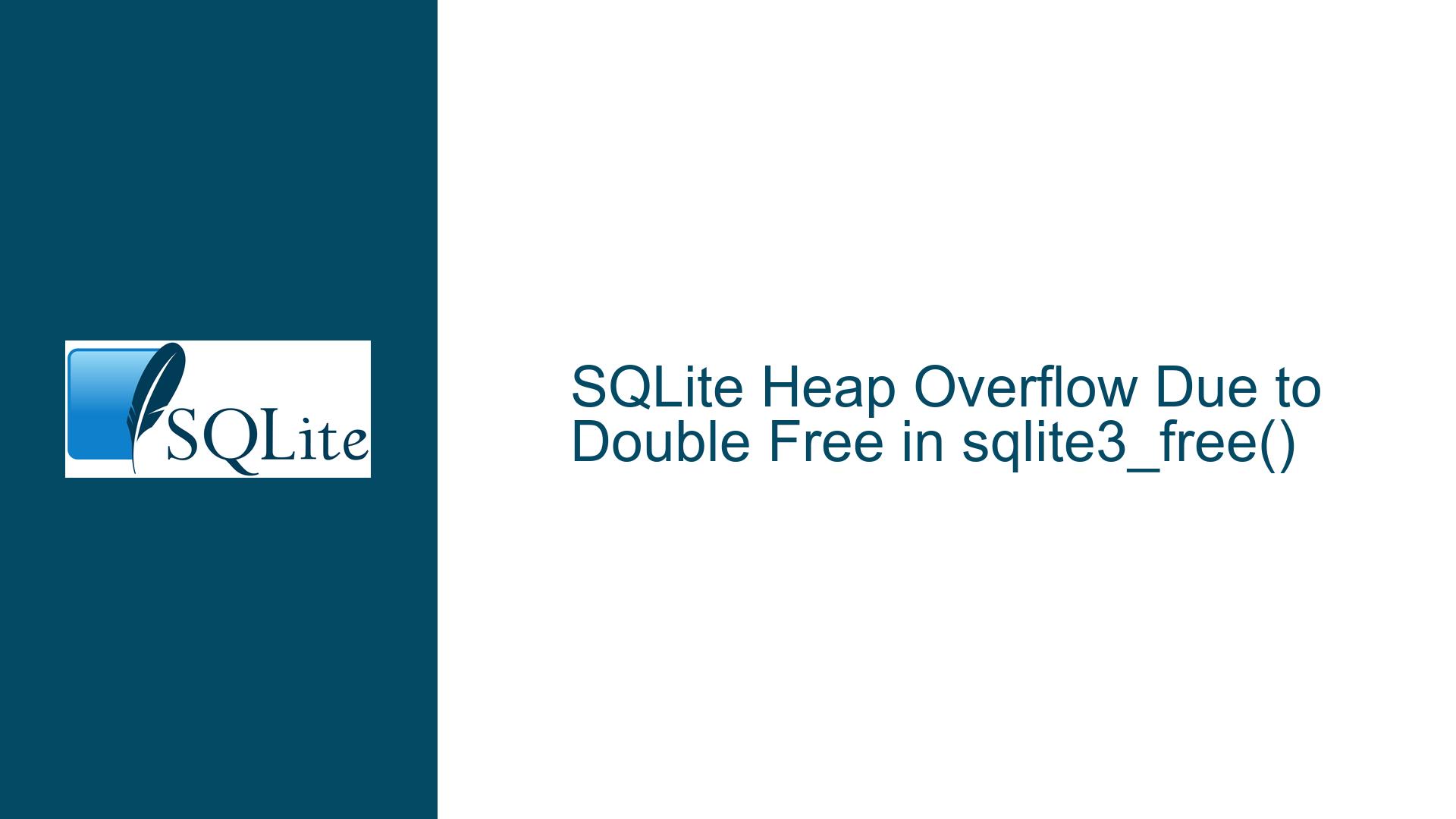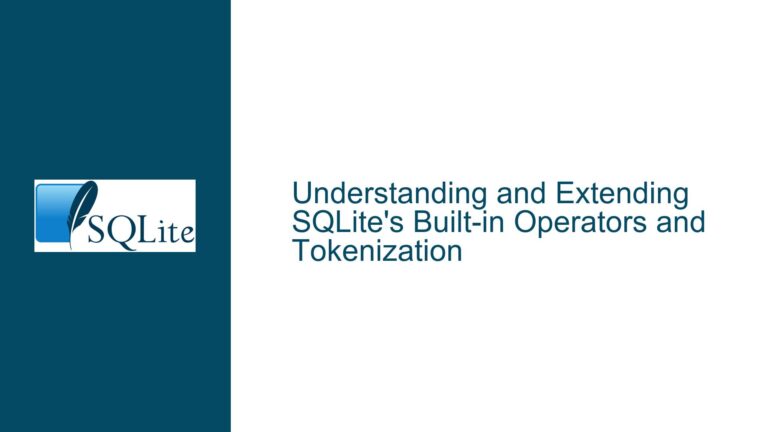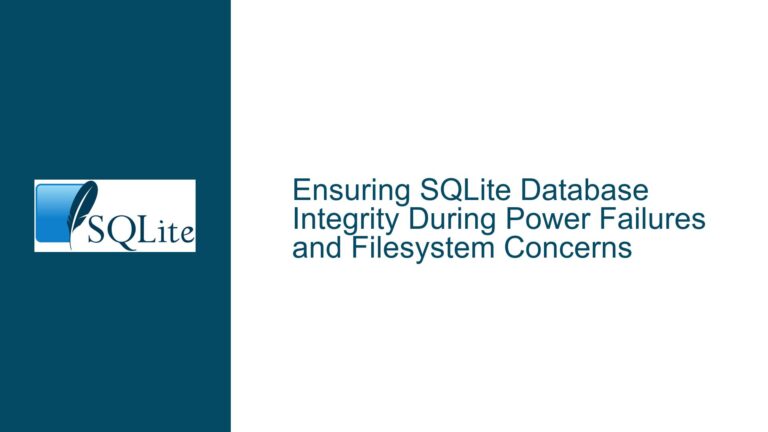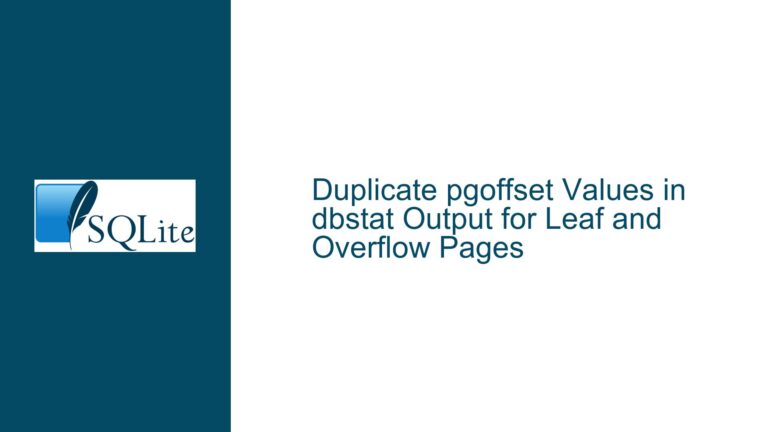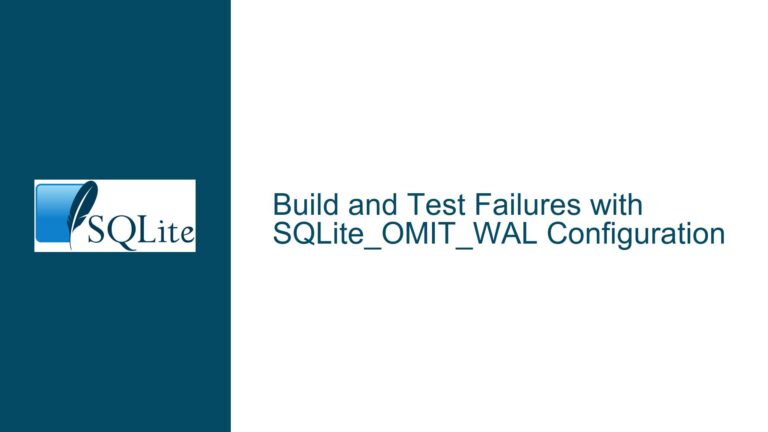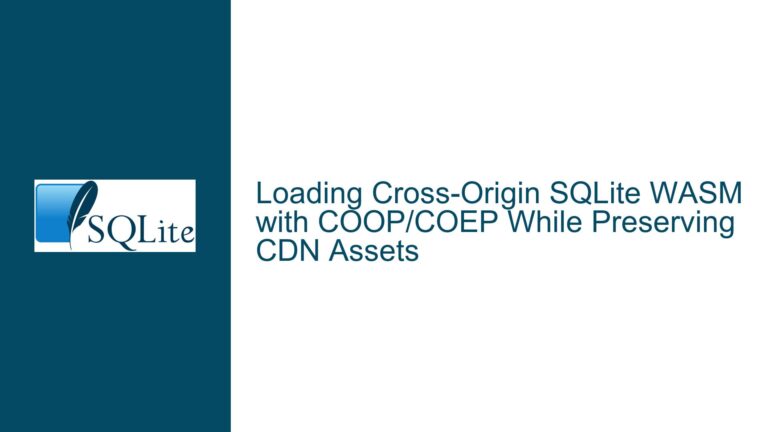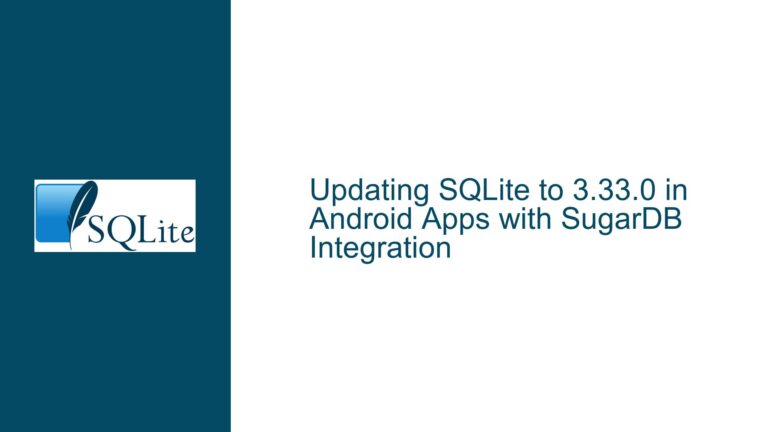SQLite Heap Overflow Due to Double Free in sqlite3_free()
SQLite Heap Overflow and Double Free Vulnerability
The core issue revolves around a heap overflow caused by a double free vulnerability in the SQLite library, specifically within the sqlite3_free() function. This vulnerability, referenced under CVE-2021-28491, occurs when memory is freed more than once, leading to undefined behavior, memory corruption, and potential exploitation by malicious actors. The double free issue is particularly dangerous because it can corrupt the heap, allowing attackers to execute arbitrary code or cause a denial of service (DoS) by crashing the application.
The sqlite3_free() function is a critical part of SQLite’s memory management system. It is responsible for deallocating memory that was previously allocated by sqlite3_malloc() or similar functions. When a double free occurs, the function attempts to free a memory block that has already been freed, leading to heap corruption. This corruption can manifest in various ways, including application crashes, data corruption, or even remote code execution if exploited carefully.
The vulnerability is not inherently a flaw in the SQLite library itself but rather a misuse of the library by an application that improperly calls sqlite3_free(). However, the discussion highlights the importance of understanding how SQLite’s memory management functions interact with application code and how improper usage can lead to severe consequences.
Interrupted Memory Management Leading to Heap Corruption
The primary cause of the heap overflow and double free issue is improper memory management by the application using the SQLite library. Specifically, the application may call sqlite3_free() multiple times on the same memory pointer, leading to a double free. This can happen due to several reasons:
Application Logic Errors: The application may contain bugs that cause it to free the same memory block more than once. For example, if the application maintains multiple references to the same memory block and frees each reference without proper checks, a double free can occur.
Race Conditions in Multi-threaded Applications: In a multi-threaded environment, race conditions can lead to double free issues. If two threads attempt to free the same memory block simultaneously, the heap can become corrupted. SQLite provides mechanisms like mutexes to handle thread safety, but improper usage of these mechanisms can still lead to vulnerabilities.
Improper Error Handling: If the application does not handle errors correctly, it may attempt to free memory that has already been freed. For example, if an error occurs during a database operation, the application might free memory as part of its cleanup routine, but if the same cleanup routine is called multiple times, a double free can occur.
Third-party Code Integration: If the application integrates third-party code that improperly manages memory, it can lead to double free issues. For example, if a third-party library calls
sqlite3_free()on a pointer that the application also frees, a double free can occur.Misuse of SQLite’s Memory Management Functions: The application might misuse SQLite’s memory management functions, such as calling
sqlite3_free()on a pointer that was not allocated bysqlite3_malloc()or similar functions. This can lead to undefined behavior, including heap corruption.
Implementing Proper Memory Management and Debugging Techniques
To address the heap overflow and double free issue, developers must implement proper memory management practices and debugging techniques. The following steps outline how to identify, troubleshoot, and resolve the issue:
Step 1: Review Application Code for Memory Management Errors
The first step in resolving the double free issue is to review the application code for memory management errors. Developers should carefully examine all calls to sqlite3_free() and ensure that each memory block is freed only once. This includes checking for:
Multiple Free Calls: Ensure that the same memory pointer is not passed to
sqlite3_free()more than once. This can be done by maintaining a record of allocated and freed memory blocks and checking this record before callingsqlite3_free().Proper Error Handling: Ensure that error handling routines do not attempt to free memory that has already been freed. This can be achieved by setting pointers to
NULLafter freeing them and checking forNULLbefore attempting to free them again.Thread Safety: In multi-threaded applications, ensure that memory management operations are thread-safe. This can be done by using mutexes or other synchronization mechanisms to prevent race conditions.
Step 2: Use Debugging Tools to Identify Double Free Issues
Debugging tools can help identify double free issues by tracking memory allocations and deallocations. The following tools and techniques can be used:
Valgrind: Valgrind is a powerful tool for detecting memory management issues, including double free errors. It can be used to run the application and track all memory allocations and deallocations. Valgrind will report any double free errors, along with the stack trace of where the error occurred.
AddressSanitizer: AddressSanitizer is a memory error detector that can be used to identify double free issues. It works by instrumenting the application code to track memory allocations and deallocations. AddressSanitizer will report any double free errors, along with the stack trace of where the error occurred.
SQLite Debugging Features: SQLite provides several debugging features that can help identify memory management issues. For example, the
SQLITE_DEBUGcompile-time option enables additional debugging checks, including checks for double free errors. Developers can enable this option and recompile SQLite to take advantage of these debugging features.
Step 3: Implement Proper Memory Management Practices
To prevent double free issues, developers should implement proper memory management practices, including:
Use After Free Detection: Ensure that memory is not used after it has been freed. This can be done by setting pointers to
NULLafter freeing them and checking forNULLbefore using them.Memory Allocation Tracking: Maintain a record of all memory allocations and deallocations. This can be done using a custom memory allocator that tracks allocations and deallocations and checks for double free errors.
Automated Testing: Implement automated tests that check for memory management issues, including double free errors. This can be done using unit tests, integration tests, and stress tests that exercise the application’s memory management code.
Step 4: Update to the Latest Version of SQLite
SQLite is actively maintained, and new versions often include bug fixes and security improvements. Developers should ensure that they are using the latest version of SQLite to take advantage of these improvements. If the double free issue is related to a bug in SQLite, updating to the latest version may resolve the issue.
Step 5: Implement Defensive Programming Practices
Defensive programming practices can help prevent double free issues by adding additional checks and safeguards to the application code. These practices include:
Nullifying Pointers After Free: After freeing a memory block, set the pointer to
NULL. This ensures that any subsequent attempts to free the pointer will have no effect.Using Smart Pointers: In C++ applications, smart pointers can be used to manage memory automatically. Smart pointers ensure that memory is freed only once and prevent double free issues.
Code Reviews and Static Analysis: Regularly review the application code for memory management issues and use static analysis tools to identify potential problems. Code reviews and static analysis can help catch double free issues before they become a problem.
Step 6: Monitor and Analyze Crash Reports
If the application crashes due to a double free issue, developers should monitor and analyze crash reports to identify the root cause. Crash reports can provide valuable information, including the stack trace of where the crash occurred and the state of the application at the time of the crash. This information can be used to identify and fix the underlying issue.
Step 7: Educate Developers on Memory Management Best Practices
Finally, developers should be educated on memory management best practices to prevent double free issues. This includes understanding how memory allocation and deallocation work, how to use debugging tools, and how to implement proper memory management practices. Regular training and code reviews can help ensure that developers are aware of these best practices and apply them in their code.
Conclusion
The heap overflow and double free issue in SQLite, as highlighted by CVE-2021-28491, is a serious vulnerability that can lead to memory corruption, application crashes, and potential exploitation by malicious actors. While the issue is not inherently a flaw in the SQLite library itself, it underscores the importance of proper memory management practices in applications that use SQLite.
By reviewing application code for memory management errors, using debugging tools to identify double free issues, implementing proper memory management practices, updating to the latest version of SQLite, and educating developers on memory management best practices, developers can prevent double free issues and ensure the stability and security of their applications.
Memory management is a critical aspect of software development, and developers must take care to manage memory correctly to avoid issues like double free errors. By following the steps outlined in this guide, developers can identify, troubleshoot, and resolve double free issues in their applications, ensuring that they are robust, secure, and reliable.
